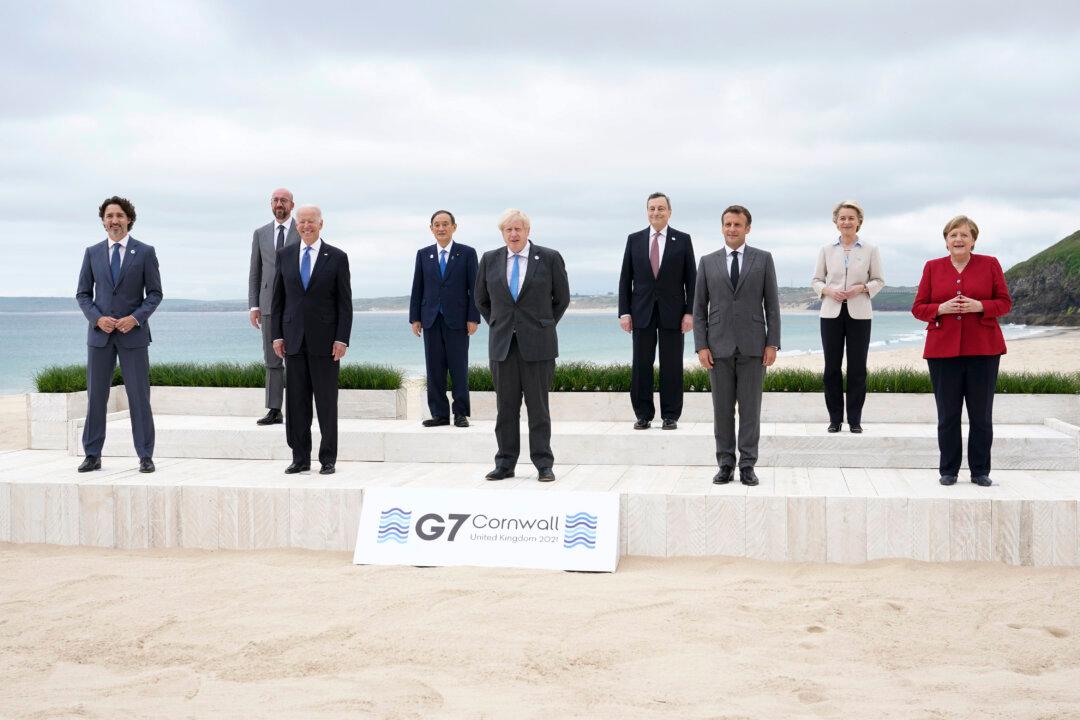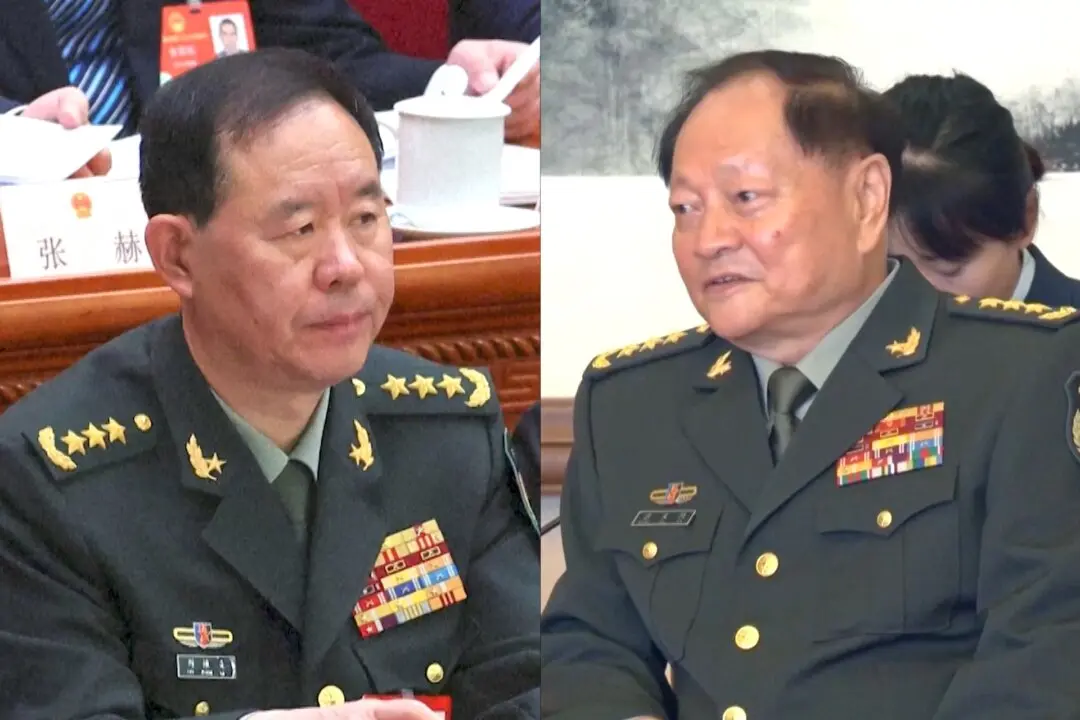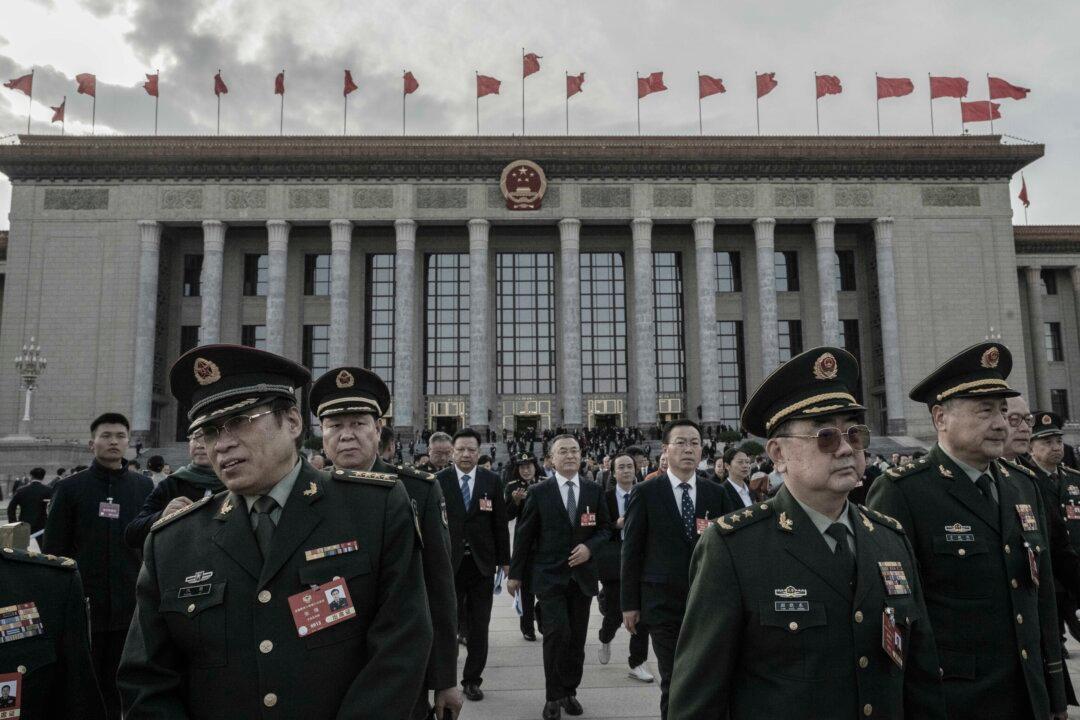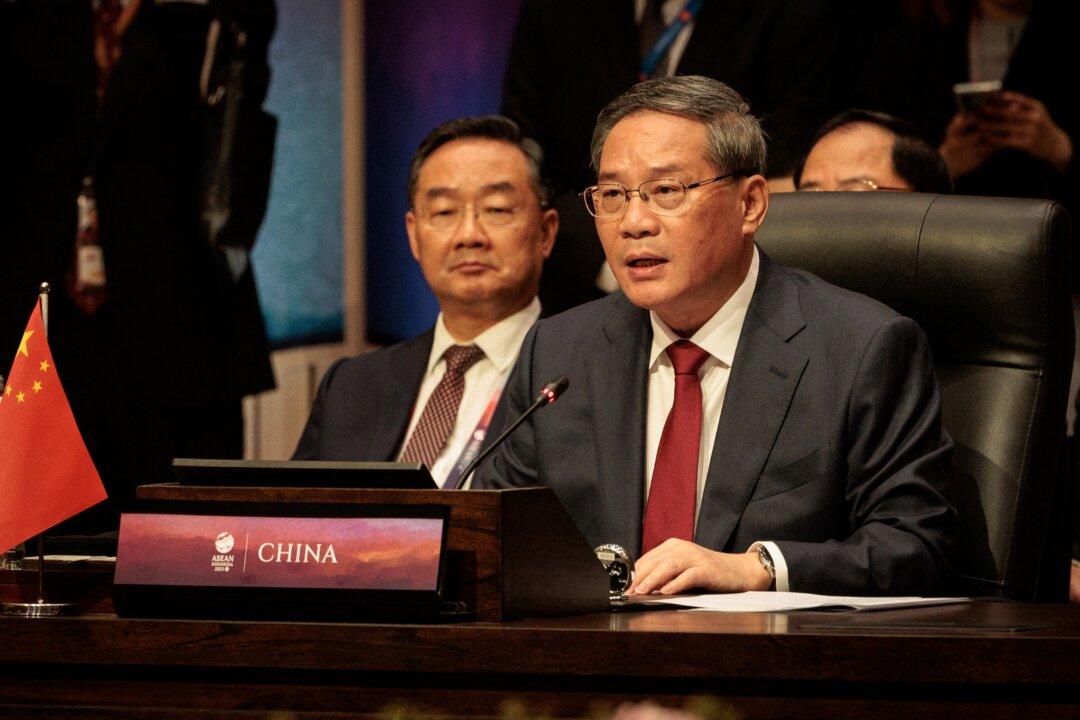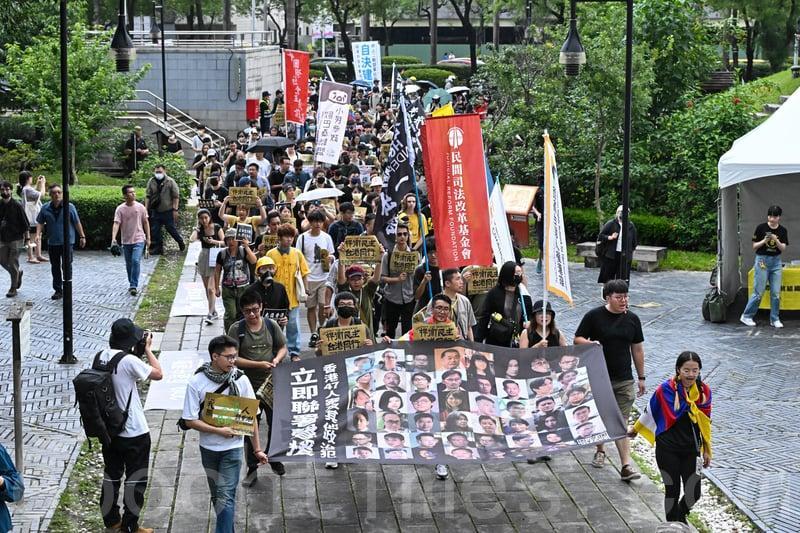Commentary
The Group of Seven (G-7) summit communiqué (pdf) issued on June 13 reveals a tough stance against the Chinese Communist Party (CCP), unsurprisingly on issues including the origin of COVID-19, human rights, Hong Kong autonomy, and security across the Taiwan Strait and in the Indo-Pacific region. It also mentions economic and trade issues and “the full implementation of WTO rules to integrate into the world trading system,” obviously with the aim of curbing the CCP’s Belt and Road Initiative (BRI).
